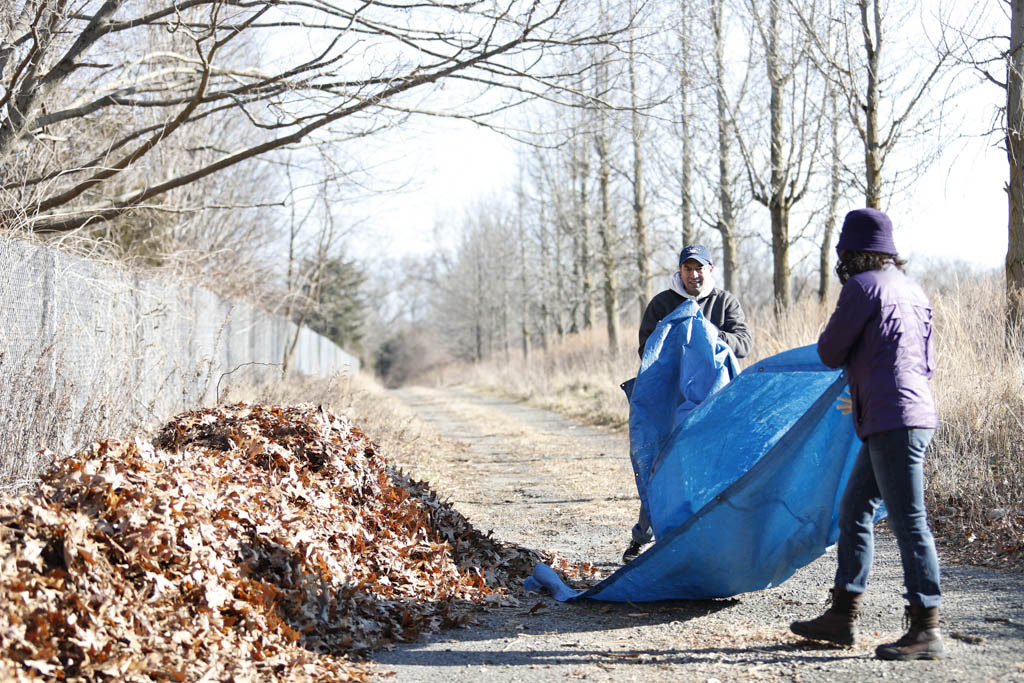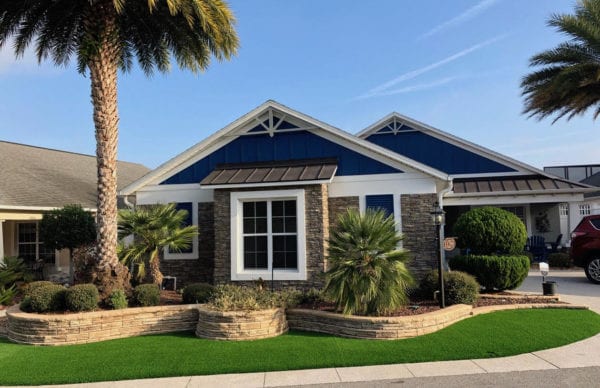Deprecated: str_replace(): Passing null to parameter #3 ($subject) of type array|string is deprecated in /home/newsfqwf/kechambers/wp-includes/formatting.php on line 4268
]]>
 A new Oregon State University Extension Service website provides science-based solutions for garden pests, weeds and disease problems in one easy-to-navigate place. The project was shepherded by Weston Miller, an OSU Extension community horticulturist who started six years ago when collaborators expressed interest and provided funds for what would become the Solve Pest and Weed […]]]>
A new Oregon State University Extension Service website provides science-based solutions for garden pests, weeds and disease problems in one easy-to-navigate place. The project was shepherded by Weston Miller, an OSU Extension community horticulturist who started six years ago when collaborators expressed interest and provided funds for what would become the Solve Pest and Weed […]]]>
A new Oregon State University Extension Service website provides science-based solutions for garden pests, weeds and disease problems in one easy-to-navigate place.
The project was shepherded by Weston Miller, an OSU Extension community horticulturist who started six years ago when collaborators expressed interest and provided funds for what would become the Solve Pest and Weed Problems website.
“Our stakeholders – Metro, the East and West Multnomah Soil and Water Conservation Districts and the city of Gresham – challenged OSU to create a user-friendly pest management resource for the public. Part of my job was to figure out the resources Extension has and pull them together in one place,” Miller said.
Solve Pest and Weed Problems focuses specifically on the Pacific Northwest and prioritizes low-risk approaches. Based on feedback, Miller incorporated household pests, invasive plants, pesticide safety and pollinators, as well as pests and diseases.
“We did extensive planning, including community involvement, user testing, feedback from agencies, nonprofits and many more,” Miller said. “We were able to hire a professional to design the website and do graphic design. Gradually, we kept improving it and building on it.”
The peer-reviewed content is presented in categories with information presented below photos. Clicking on the photo takes you to another page that offers information about identification, look-alikes and specific information on control. Photos illustrate each subject.
After compiling Extension resources from sources like the Pacific Northwest Pest Management Handbooks, entries are written by Miller with help from Signe Danler, OSU Extension Master Gardener online horticulture instructor, and other OSU experts. The content is peer reviewed by the OSU Department of Horticulture in the College of Agricultural Sciences. Miller edits the content and posts it on the website. More entries will be added in the future.
To provide more information, the website features links to other OSU Extension resources, as well as to other university-level, science-based sources.
“We hope that people both public and private property managers find practical pest management and prevention,” Miller said. “We want people to use it to make informed decisions for their gardens and public spaces.”
To do that, users will find sections on using less pesticides, pesticide safety, organic pesticides and preventive measures like planting in the right place for the size, water needs, exposure and soil for each plant. Using good selection criteria keeps plants healthy and a healthy plant can fend off pests and diseases, Miller said. The hope he added is that people will use less pesticides – or if they do, in a safe manner.
Weeds – from both sides of the Cascades and from throughout the state – get attention. Examples include cheatgrass in eastern and western Oregon; pampas grass on the coast; and tree of heaven, a species of concern statewide. The website includes guides about how to manage landscapes without pesticides or herbicides and 20 pages of pesticide safety guidance.
“We’re putting together material that’s not available in one place with such complete information,” Miller said. “We are super grateful to our partnerships in the broader community who were looking to have a durable information service to meet a fairly defined need. I’m proud of what we’ve accomplished.”
]]>Deprecated: str_replace(): Passing null to parameter #3 ($subject) of type array|string is deprecated in /home/newsfqwf/kechambers/wp-includes/formatting.php on line 4268
]]>
 Action Lawn and Tree Service, a lawn, tree and pond care company in Sioux Falls, SD, joins forces with Weller Brothers Landscaping, a commercial and residential landscape design and maintenance company in Sioux Falls, SD “Our Action Lawn and Tree Service customers will continue to receive the same quality services from the same team,” said […]]]>
Action Lawn and Tree Service, a lawn, tree and pond care company in Sioux Falls, SD, joins forces with Weller Brothers Landscaping, a commercial and residential landscape design and maintenance company in Sioux Falls, SD “Our Action Lawn and Tree Service customers will continue to receive the same quality services from the same team,” said […]]]>
Action Lawn and Tree Service, a lawn, tree and pond care company in Sioux Falls, SD, joins forces with Weller Brothers Landscaping, a commercial and residential landscape design and maintenance company in Sioux Falls, SD
“Our Action Lawn and Tree Service customers will continue to receive the same quality services from the same team,” said Ryan Myott, owner of Action Lawn and Tree Service. “Now, with Weller Brothers, we will be the one stop shop for the best outdoor living experience in Sioux Falls.”
In its 21st year of business in the Sioux Falls area, Weller Brothers Landscaping recently celebrated a ribbon-cutting ceremony for its new facility in Rochester, Minn. The company’s Sioux Falls location employs approximately 100 people.
“We are very excited about this merger,” says Cole Weller, President and CEO of Weller Brothers Landscaping. “With the addition of Ryan and his team, we are able to expand our services to include enhanced pest control and a full scope of tree health, pruning and removal services. This aligns perfectly with our commitment to offering our customers a full scope of the highest quality lawn and landscape maintenance services in the Midwest.”
]]>Deprecated: str_replace(): Passing null to parameter #3 ($subject) of type array|string is deprecated in /home/newsfqwf/kechambers/wp-includes/formatting.php on line 4268
]]>
 Let me add my voice to the chorus of requests I have seen in the papers over the past few weeks and months for something about the sound and effect of leaf blowers and, I may add, other machines powered by them inefficient and heavily polluting small engines are doing to our air quality. Beyond […]]]>
Let me add my voice to the chorus of requests I have seen in the papers over the past few weeks and months for something about the sound and effect of leaf blowers and, I may add, other machines powered by them inefficient and heavily polluting small engines are doing to our air quality. Beyond […]]]>
Let me add my voice to the chorus of requests I have seen in the papers over the past few weeks and months for something about the sound and effect of leaf blowers and, I may add, other machines powered by them inefficient and heavily polluting small engines are doing to our air quality.
Beyond the noise problem, the air pollution from exhaust emissions from these engines has a direct impact on our breathing and the known effects of air pollution on asthma and lung problems, which lead to thousands of deaths nationwide each year.
Both the landscaping crews at Griggs Farm, where we lived for seven years, and the crews who live on Pine Street, where we’re currently renting, seem to get through in three waves: one with motor mowers, one with edger / Trimmers and once with leaf blowers, and all of these machines use the same deafening and heavily polluting two-stroke engines. I’ve also seen gas powered hedge trimmers.
Any regulation should prohibit or regulate the use of all these machines.
As soon as the landscaping crew’s machines approach, I have to hurry to close the windows and doors or the pollution has entered my house and is difficult to remove. And when you’re out when a crew comes by, it’s like a hurricane.
I recently had the misfortune of having to walk past 7-Eleven and the post office on the driveway while a crew of two worked there and only blew a few leaves away (where did the leaves land?), But the whole thing was chafing paved surface and blowing Dirt and trash along with the few leaves around. I held my ears, but I didn’t think of holding my breath until I was caught in a thick cloud of pollution and absorbed half a lung. The harmfulness of the dense cloud of dirt and emissions was terrible and obvious.
I’ve always thought that using rakes and brooms was a better approach like it used to be, but I’ve seen interviews online with landscapers whose main goal is to get it done quickly and move on to the next job. Another investigation found that a number of cities across the country have enacted ordinances banning gas-powered leaf blowers. The usual solution is to replace battery-powered electric blowers, which are now just as powerful as the gas versions, a little quieter and zero emissions (although they blow dirt and debris into the air as you work). This would be a much better solution as the landscapers shouldn’t mind switching the equipment they are already using to electrically powered versions as that shouldn’t slow them down at all. And it would certainly benefit workers who clearly suffer more than the rest of us from using such dangerously unhealthy machinery.
I like the city’s reminder, sparked by the pandemic, that “we are all together on this matter,” and I think it applies more generally to any situation where a citizen’s actions affect all of their neighbors, as in this case the economy “externalities.” I am grateful to the wise and caring city officials and to the volunteers and officials of the Princeton Environmental Commission and Sustainable Princeton for their efforts to address this issue. Thank you all.
Christopher J. Monroe
Princeton
]]> Short Summary An Illinois appeals court ruled that plaintiffs’ malpractice lawsuit was statute barred because plaintiffs knew, or reasonably should have known, of their undue damage more than two years prior to filing. The court also dismissed plaintiffs’ fraudulent cover-up suit. Another division of the same court previously (and accurately) stated: “[t]Applying a statute of […]]]>
Short Summary An Illinois appeals court ruled that plaintiffs’ malpractice lawsuit was statute barred because plaintiffs knew, or reasonably should have known, of their undue damage more than two years prior to filing. The court also dismissed plaintiffs’ fraudulent cover-up suit. Another division of the same court previously (and accurately) stated: “[t]Applying a statute of […]]]>
Short Summary
An Illinois appeals court ruled that plaintiffs’ malpractice lawsuit was statute barred because plaintiffs knew, or reasonably should have known, of their undue damage more than two years prior to filing. The court also dismissed plaintiffs’ fraudulent cover-up suit. Another division of the same court previously (and accurately) stated: “[t]Applying a statute of limitations, especially on unlawful acts, can be difficult, technical and, as this case shows, fatal for those who do not adequately foresee their possibility. “Carlson v. Fish, IL App 2015 (1.) 140526, 1 (Hyman, J.).
Complete summary
Plaintiffs, County Line and its owner (Collins) were embroiled in a contract dispute with the Glencoe Park District (the park). In September 2013, County Line filed a breach of contract complaint against the park, demanding around $ 75,000. The park filed a counterclaim for breach of contract. County Line was represented by a variety of attorneys throughout the case.
On May 29, 2014, the defendant (Defendant) attended a status hearing and appealed to the court despite not filing an appearance for County Line. The defendant told the court that he had spoken to Collins and was reviewing the file. The court continued the case through June 10, 2014, and ordered County Line to file an appearance by then. On June 10, 2014, the defendant requested another sequel and the case continued through June 18, 2014. On June 18, 2014, the defendant reappeared but failed to appear, and Collins was present in court. After the status hearing on June 18, 2014, the defendant raised the prospect of reaching an agreement with the park’s attorney. The parties discussed a settlement with a one-time payment of $ 17,500 to County Line. The park’s attorney informed the defendant the next day that the park agreed to the settlement. The attorney emailed the defendant a clearance that Collins was supposed to sign by June 24th so the court could dismiss the case to the next scheduled status on June 26th, 2014.
On June 24, 2014, the park’s attorney was contacted by an attorney named Joshua Slade, who told him that Collins had spoken to him about representing County Line. Slade stated that he had no knowledge of a settlement. The park’s attorney then contacted the defendant, who was unaware that Collins was contacting other lawyers. The defendant stated that he had sent the release to Collins by June 24, but could not contact him. On June 26, 2014, another attorney (Zohaib Ali) filed an appearance for County Line. Ali stated that he was not aware of an agreement and requested a continuation. The case continued through July 24, 2014. On July 1, 2014, the park filed a motion for enforcement of the oral settlement agreement and for sanctions. County Line submitted a response that denied there was any settlement. County Line argued that the defendant had no authority to make settlement offers on County Line’s behalf. County Line’s response was backed up by Collins’ affidavit acknowledging that he and the defendant had discussed the possibility of a settlement with the park’s attorney, but Collins did not believe the case would be resolved when he called the court on June 18, left that his attorney forwarded the park’s motion to enforce settlement and sanctions on August 4, 2014. Collins claimed that it was at this time that he first “read and reviewed”[ed] the alleged settlement agreement that [was discussed] on June 18, 2014. “
On September 23, 2014, the court granted the park’s motion to enforce the settlement and impose sanctions. The court found that Collins’s affidavit was not credible and that Collins had changed his mind following the agreement. Alternatively, the court found that Collins had ratified the defendant’s actions for settlement in settlement talks. County Line appealed. On December 23, 2015, the court upheld the court’s finding that the parties had entered into an enforceable settlement agreement and ratified Collins. However, the court overturned the court’s sanctions order. County Line, 2015 IL App (1.) 143776, ¶37. In custody, the court dismissed the case on July 14, 2016, unscathed.
On October 26, 2016, plaintiffs filed this lawsuit for unlawful conduct. In their amended complaint, they alleged that the defendant had entered into settlement negotiations with the park on June 18, 2014 “on his own initiative and to decide”. Plaintiffs alleged that the defendant never informed Collins of the settlement offer or his acceptance. That defendant “fraudulently concealed … that he had entered into the settlement agreement” and instead told Collins that he was not representing County Line. Plaintiffs alleged that Collins did not become aware of a cause of action against the defendant until December 23, 2015. The appeals court upheld the court’s order to enforce the settlement. The plaintiffs alleged that the deadline for bringing charges against the defendant for the alleged cover-up had been extended to December 23, 2020.
In compensation, the plaintiffs alleged that they had been forced to accept a nominal settlement and charged attorney fees to appeal the court order to enforce the settlement. The plaintiffs alleged that they would not have suffered this damage without the alleged conduct of the defendant. The defendant’s motion to dismiss, argued that plaintiffs should have known of their violation by September 23, 2014, when the court issued its order to enforce the settlement. The plaintiffs thus had until September 23, 2016 to file their complaint about misconduct. Since they filed their complaint more than two years later, their claims were time barred. The court denied the request. The defendant filed a re-examination request, which was granted, and the case was dismissed without prejudice.
The appeals court upheld. The court first found that illegal activity in Illinois “must be commenced within two years of the date the person filing the lawsuit knew or should have known of the violation for which damages are sought.” 735 ILCS 5 / 13-214.3 (b). This provision contains the discovery rule which “sets the beginning of the limitation period until the injured party knows or should reasonably know and reasonably knows or should reasonably know that the infringement was wrongly caused”. Khan v Deutsche Bank AG, 2012 IL 112219, ¶20. The court then stated:
It is important that knowing that an injury was wrongly caused is not the same as knowing the negligent behavior of a particular defendant or knowing that there was a cause for action. (Emphasis in the original.) Rather, this knowledge exists when there is an injury. A person “has sufficient information about his injury and its cause to allow a reasonable person to investigate to determine whether it is actionable behavior.” At this point the statute of limitations “begins to run and the party is obliged to conduct further inquiries to determine whether a criminal error has been committed.” [internal citations omitted].
The court ruled that plaintiffs’ violation resulted from the June 18, 2014 settlement agreement. Even though Collins was unaware of the settlement on June 18, he admitted in his affidavit that he knew of the alleged settlement on August 4, 2014. The court recognized that “[f]or for the purpose of an illegal act, a client is not considered injured unless and until he has suffered a loss for which he can claim financial compensation. “Northern Illinois Emergency Physicians, 216 Ill.2d at 306. Generally under the Illinois Adverse Verdict Rule, that loss occurs when the plaintiff has received a negative judgment or a dismissal of the underlying complaint due to the attorney’s negligence. See eg Lucey v Law Offices of Pretzel & Stouffer, 301 Ill.App.3d 349, 356 (1998). Here the court enforced the settlement on September 23, 2014. The plaintiffs should therefore have had sufficient knowledge that they had suffered an injury and about their possibly unlawful cause on September 23, 2014. At that point, plaintiffs had a duty to further inquire whether a criminal offense had been committed. The limitation period therefore began on September 23, 2014, and plaintiffs had until September 23, 2016 to file their misconduct complaint, because the plaintiffs failing to do so, their complaint was statute barred.
Plaintiffs then argued a fraudulent cover-up, which plaintiffs often use in misconduct when faced with a statute of limitations. They alleged that the defendant was fraudulently concealing that he was serving as County Line’s attorney and settling the case without authority or consent. Plaintiffs alleged that under Section 13-215 of Illinois’ Fraudulent Concealment Act, they had five years from the date they learned of a violation of the lawsuit. The plaintiffs asserted that the five-year limitation period began on June 18, 2014 at the earliest. The court rightly found that concealment can only be achieved by positive acts or representations “designed to weigh or induce” an applicant to delay the filing of a lawsuit. Barratt v. Goldberg, 296, Fig. 3d 252, 257 (1998). However, the court recognized that there is a well-regulated law in Illinois “that if the plaintiff discovers the fraudulent concealment and has reasonable time within the relevant statute of limitations” to file a lawsuit, section 13-215 does not apply for extension The statute of limitations applies to the action. The court concluded that, despite the alleged concealment of the accused, the plaintiffs had sufficient knowledge of an unjustifiably caused violation no later than September 23, 2014, when the court enforced the settlement. The plaintiffs still had enough time to file a complaint within the two-year limitation period, which only expired on June 18, 2016. The five-year fraudulent concealment law therefore did not apply.
Importance of the decision
This case is noteworthy in that the court ruled that the plaintiff’s wrongdoing was statute-barred because plaintiffs (objectively) knew or should reasonably have known of their wrongly caused violations more than two years prior to filing the lawsuit. Plaintiffs’ fraudulent cover-up suit was also denied because they still had sufficient time to bring suit within the original statute of limitations when they admittedly discovered the alleged “cover-up”. Experienced lawyers and dabblers would be well advised to heed Justice Hyman’s warning cited in the brief summary above.
County Line Nurseries & Landscaping, Inc. v Kenney, 2020 IL App (1st) 200615 (11/20/20)
]]> A villager faces fines of $ 1,800 for artificial turf. If she doesn’t pay, she can take legal action. After months of fighting with the Board of Directors of Community Development District 6, Community Standards and the Architectural Review Committee, Shirley Schwartz finally relented and removed the artificial turf from her home in the Edgewater […]]]>
A villager faces fines of $ 1,800 for artificial turf. If she doesn’t pay, she can take legal action. After months of fighting with the Board of Directors of Community Development District 6, Community Standards and the Architectural Review Committee, Shirley Schwartz finally relented and removed the artificial turf from her home in the Edgewater […]]]>
A villager faces fines of $ 1,800 for artificial turf. If she doesn’t pay, she can take legal action.
After months of fighting with the Board of Directors of Community Development District 6, Community Standards and the Architectural Review Committee, Shirley Schwartz finally relented and removed the artificial turf from her home in the Edgewater Bungalows. She replaced the artificial turf with stone. Fines were fined $ 50 per day during the trial. The fines against her have reached $ 1,800.
This turfgrass was laid at Shirley Schwartz’s Edgewater Bungalows. It has since been removed.
The matter will be discussed on Friday at 9:30 am when the Board of Supervisors of the Community Development District meets at the Savannah Center.
The specific rule that Schwartz broke was: “To protect limited natural resources, all home sites must be completed with the same amount and style of water conservative, drought tolerant lawn and landscape as originally provided by the applicant. Regardless, the owners are encouraged to add a landscape that is more water conservative and drought tolerant than originally intended. However, such changes to areas that are visible from streets or golf courses must be approved in writing by the applicant in advance. “
 Villager Shirley Schwartz has replaced her lawn with stone in her house in the Edgewater Bungalows
Villager Shirley Schwartz has replaced her lawn with stone in her house in the Edgewater Bungalows
Schwartz didn’t seek approval from the ARC before ditching the artificial turf grass she said cost her $ 4,000. She came back into agreement on August 27th.
If she does not pay the fine, the District Attorney will seek all available legal remedies, including initiating a lawsuit, filing for an injunction, and pledging the property.
]]>